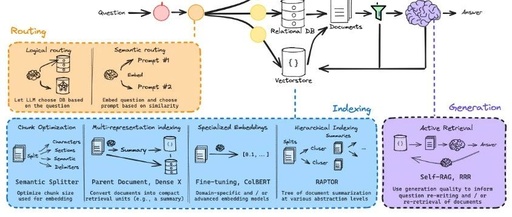Mastering RAG Series 2: Query Translation Techniques
LLM (Large Language Model) is a powerful new platform, but they are not always trained on data that is relevant to our tasks or the most recent data. RAG (Retrieval Augmented Generation) is a general method that connects LLMs with external data sources (such as private data or the latest data). It allows LLMs to … Read more









